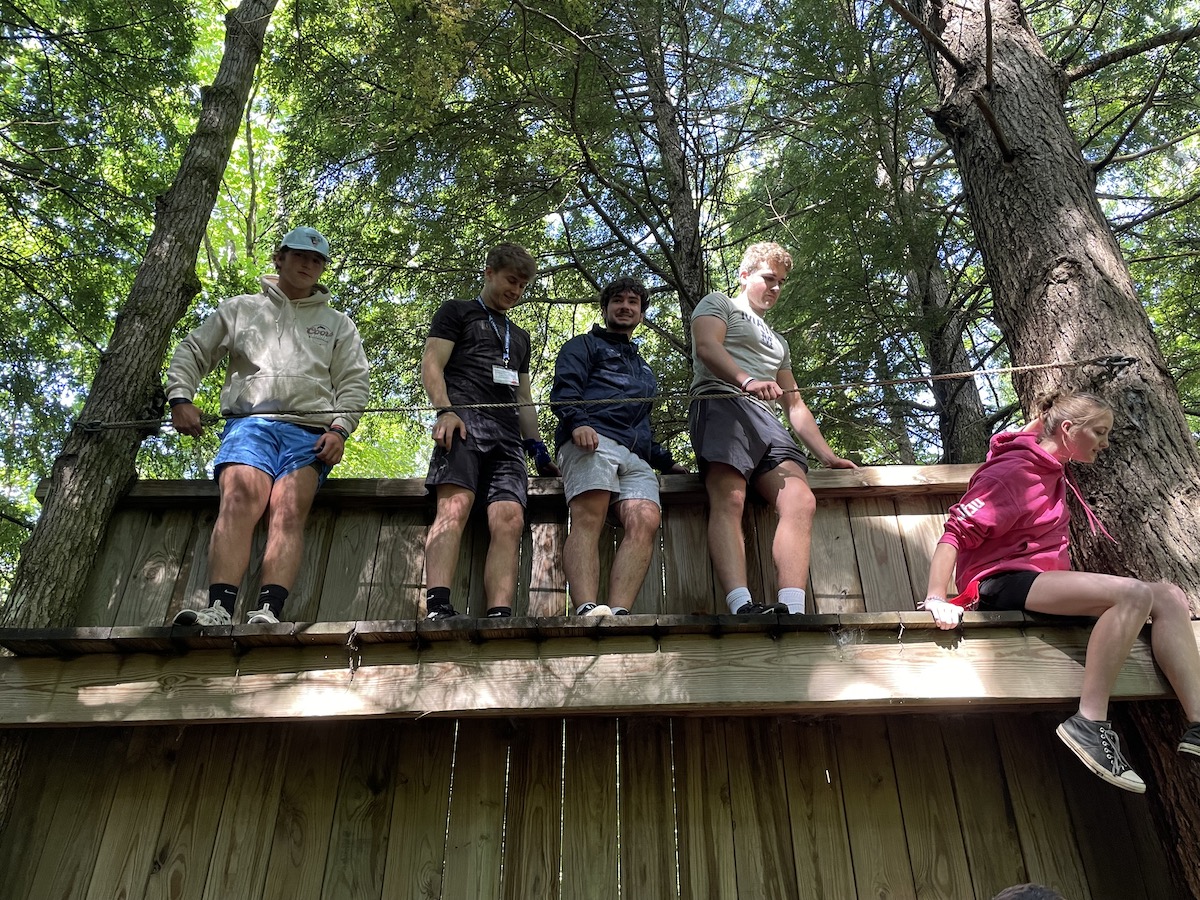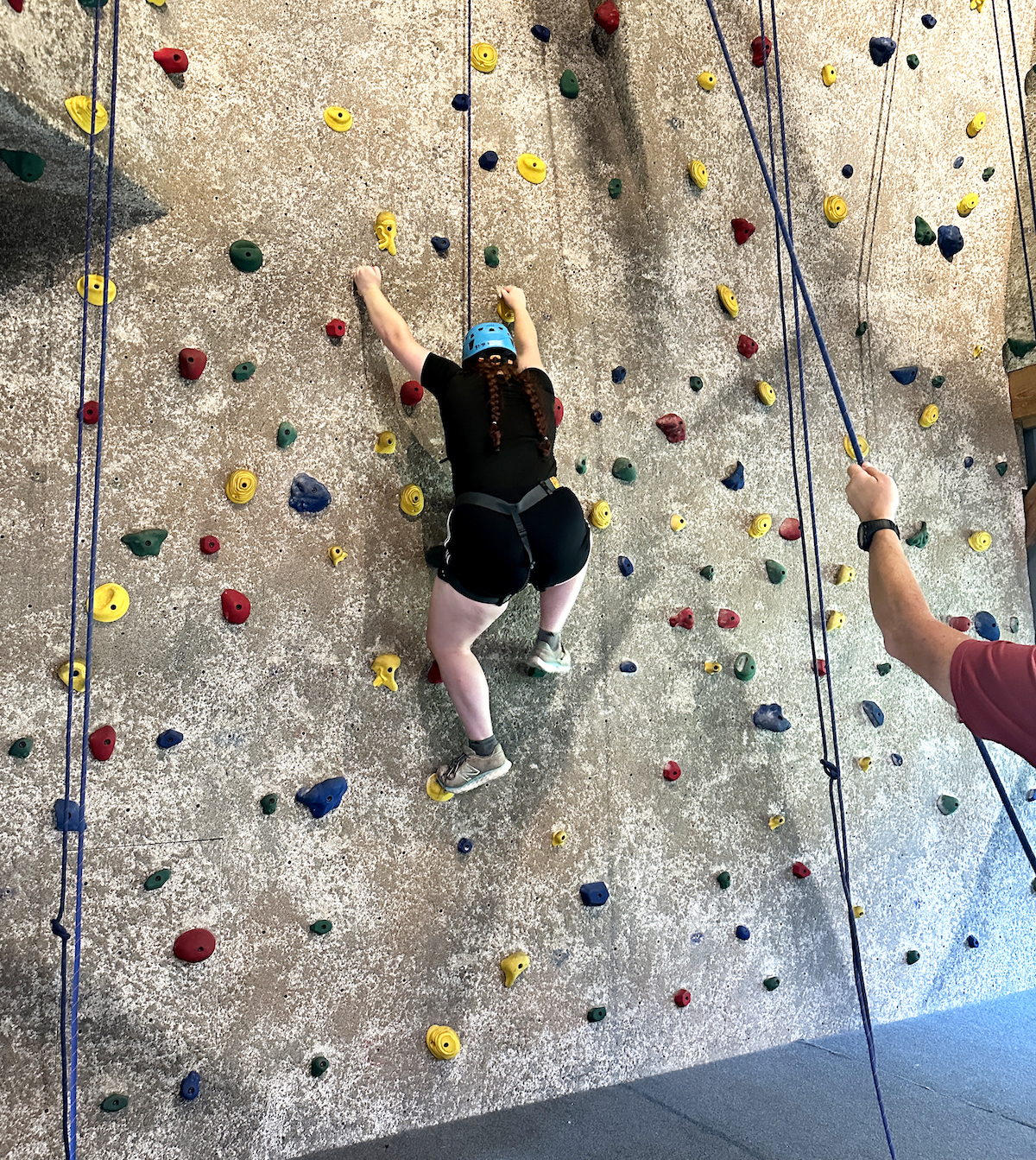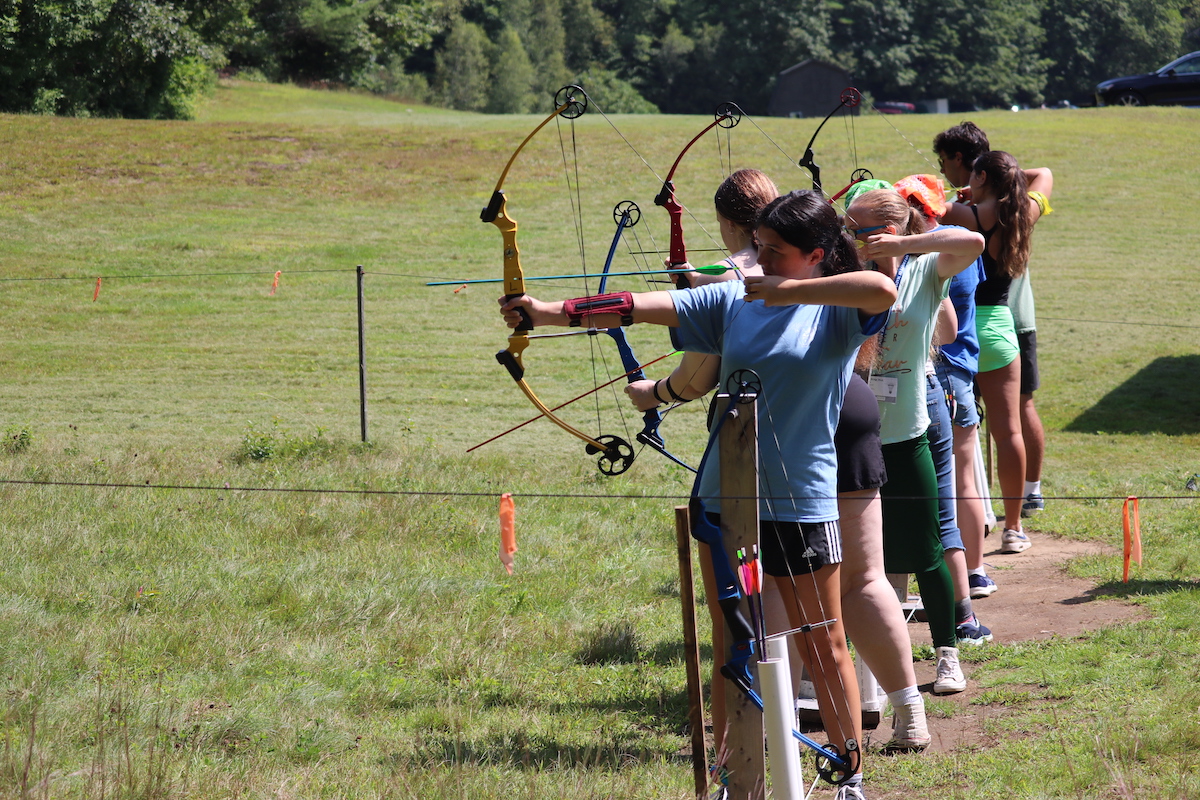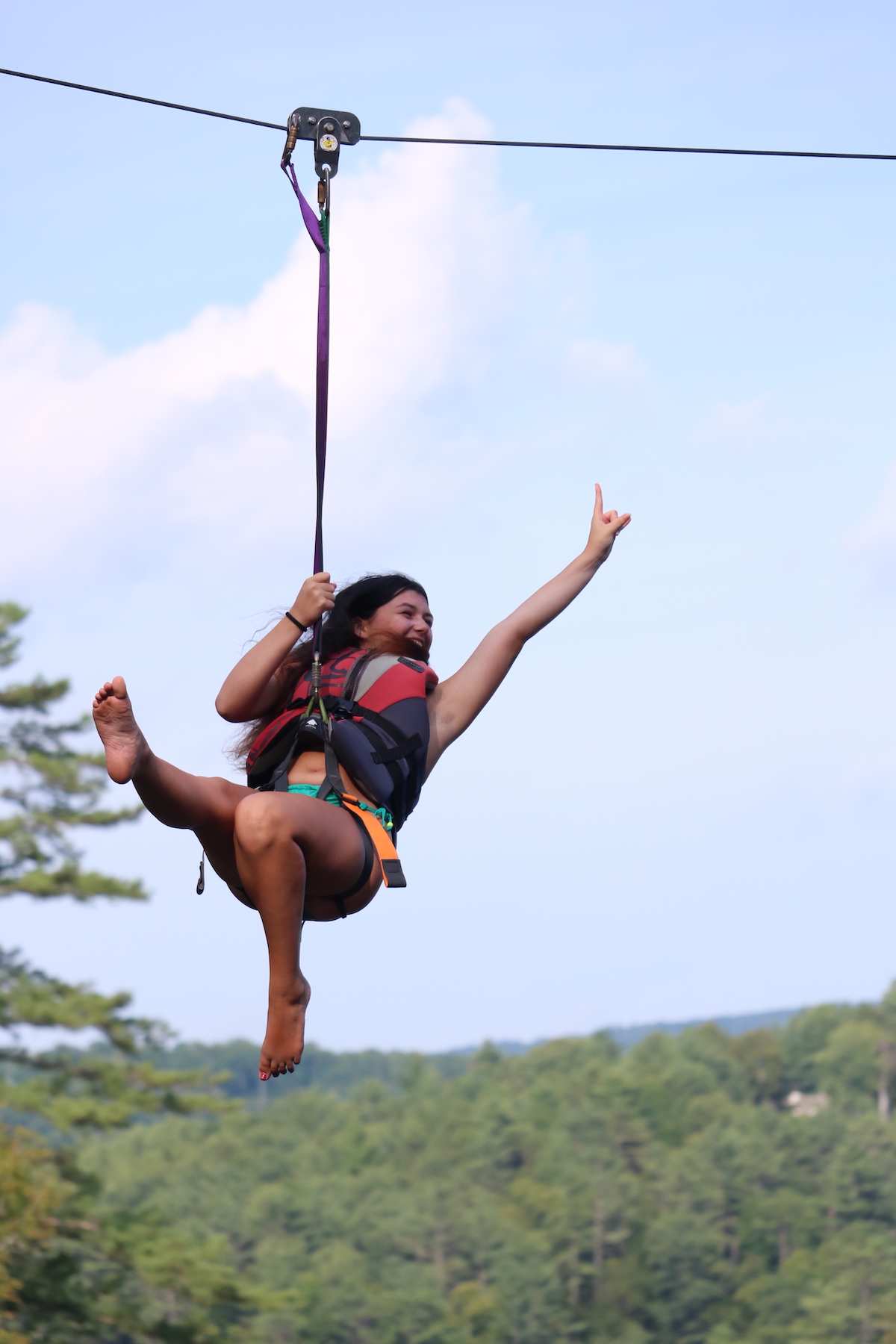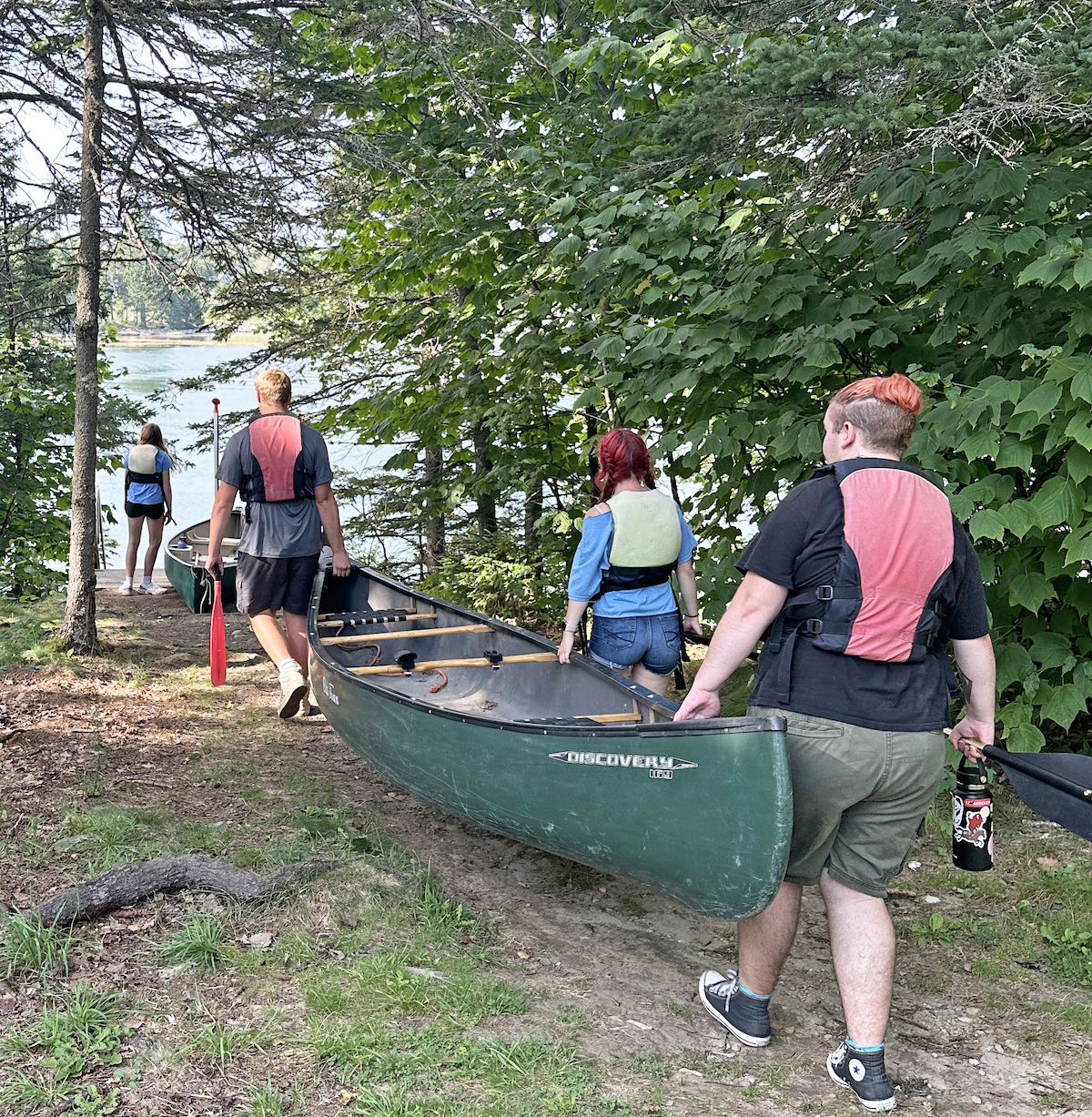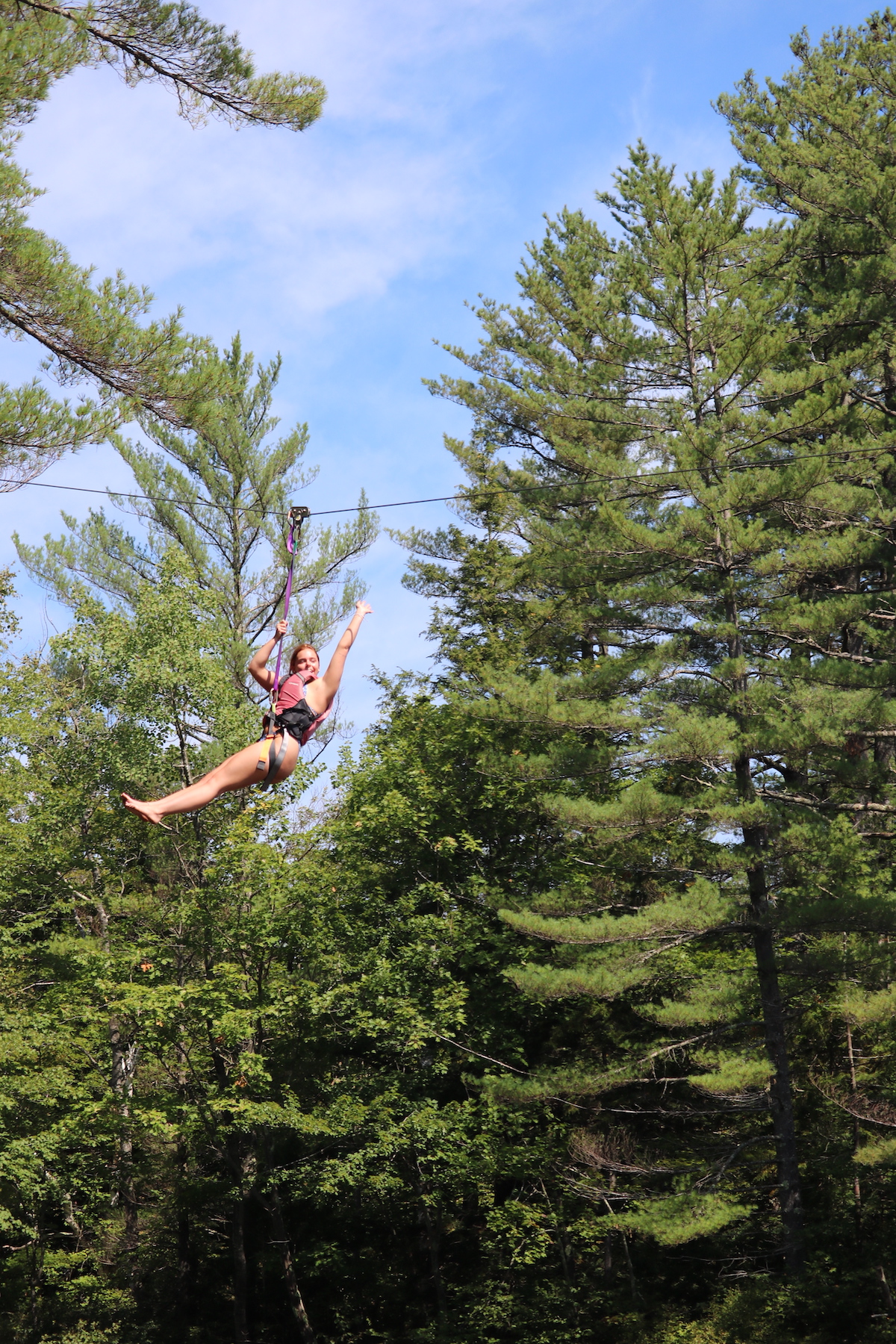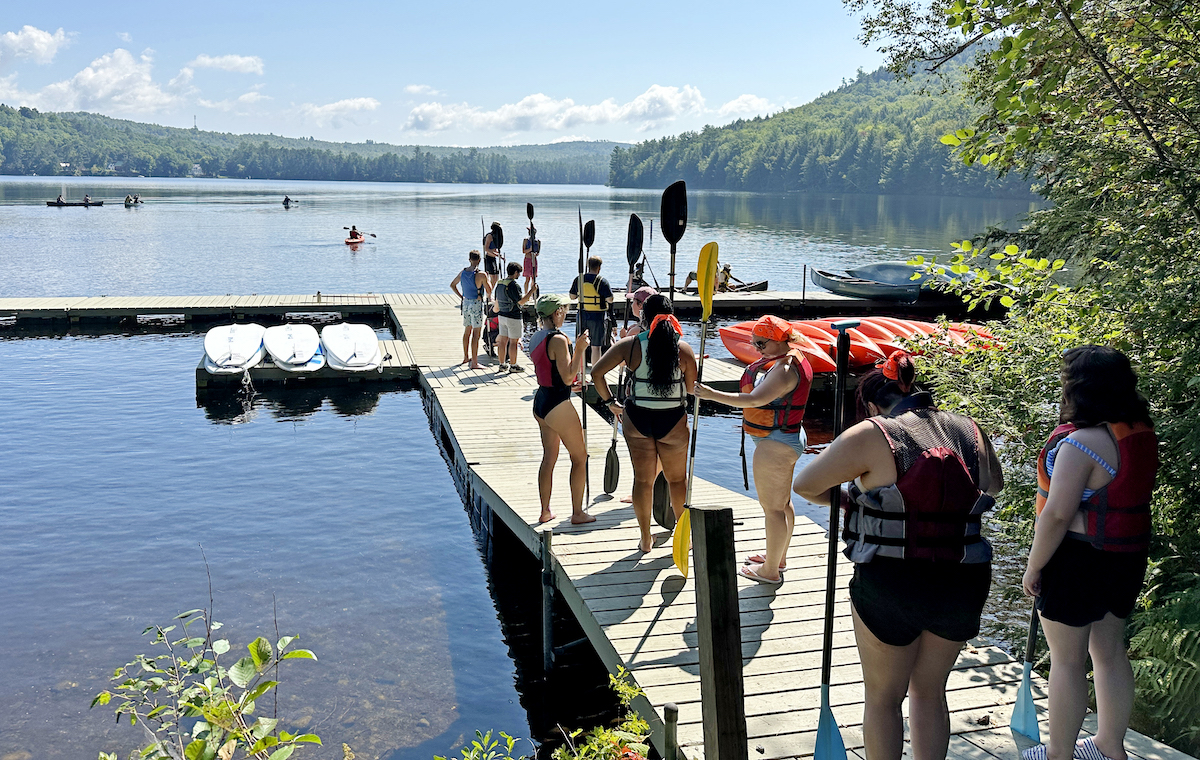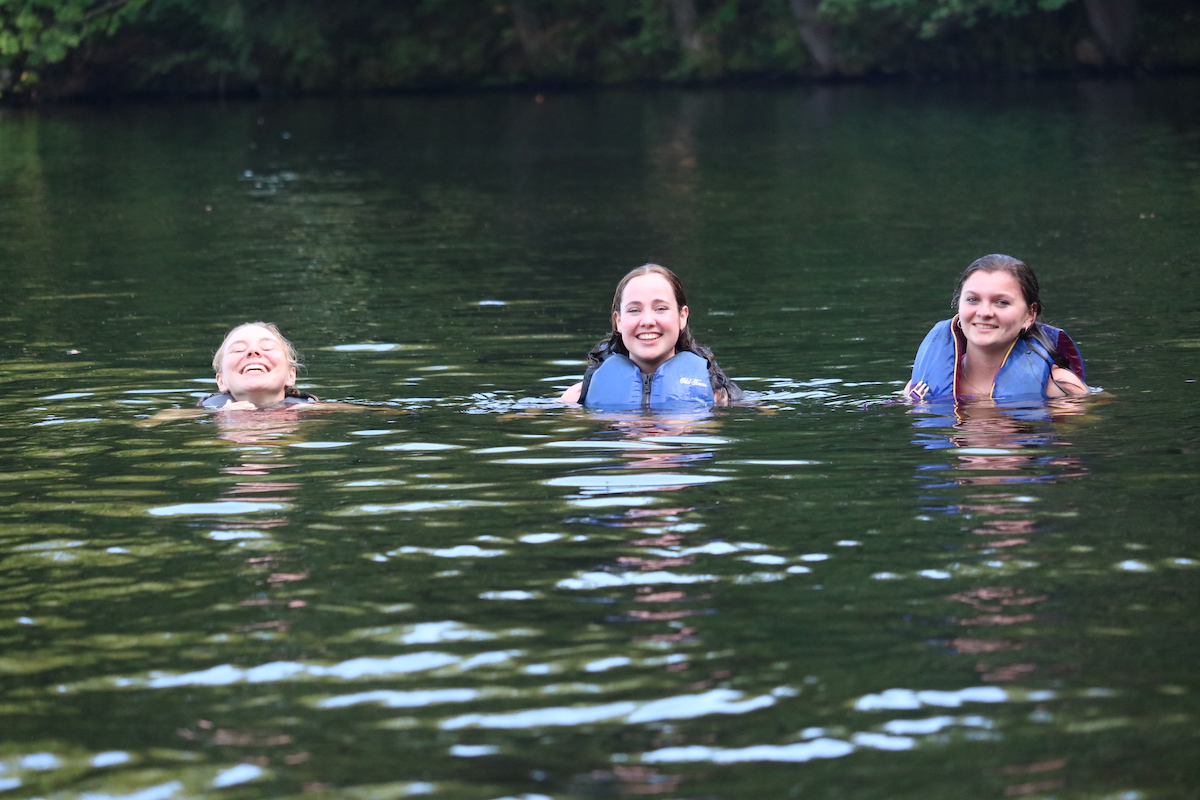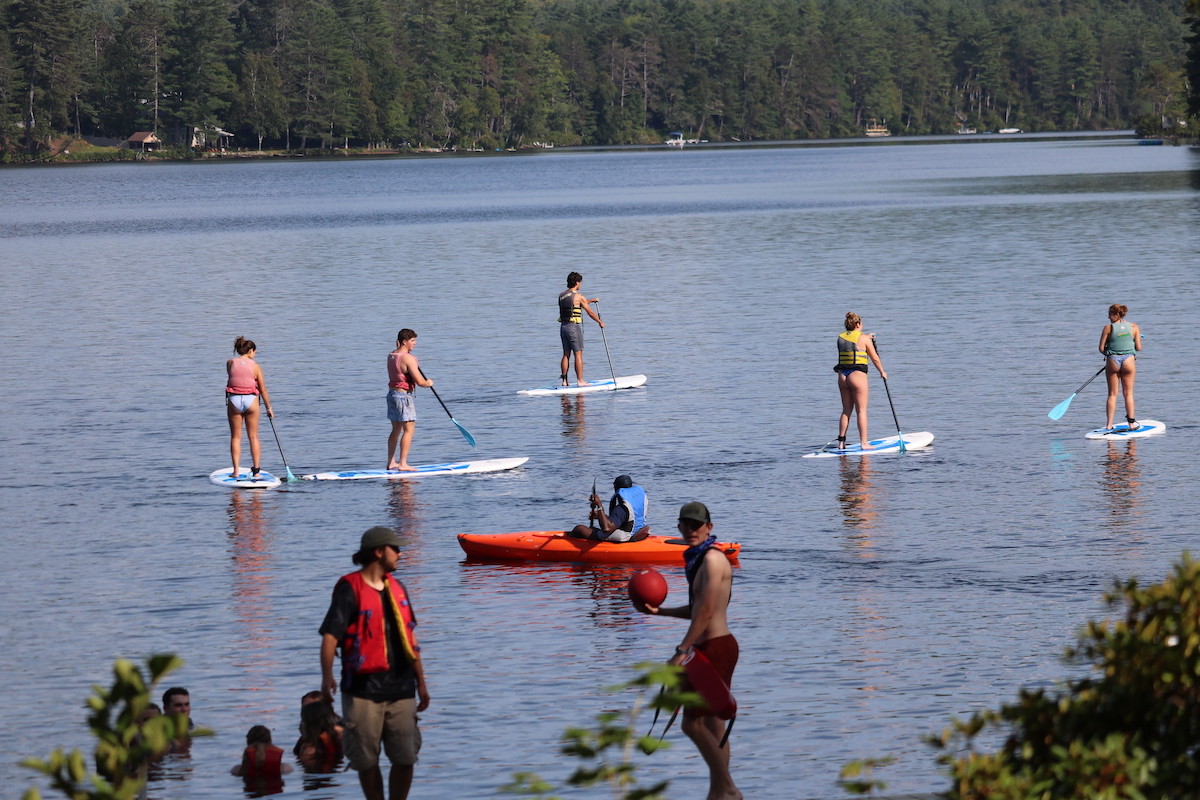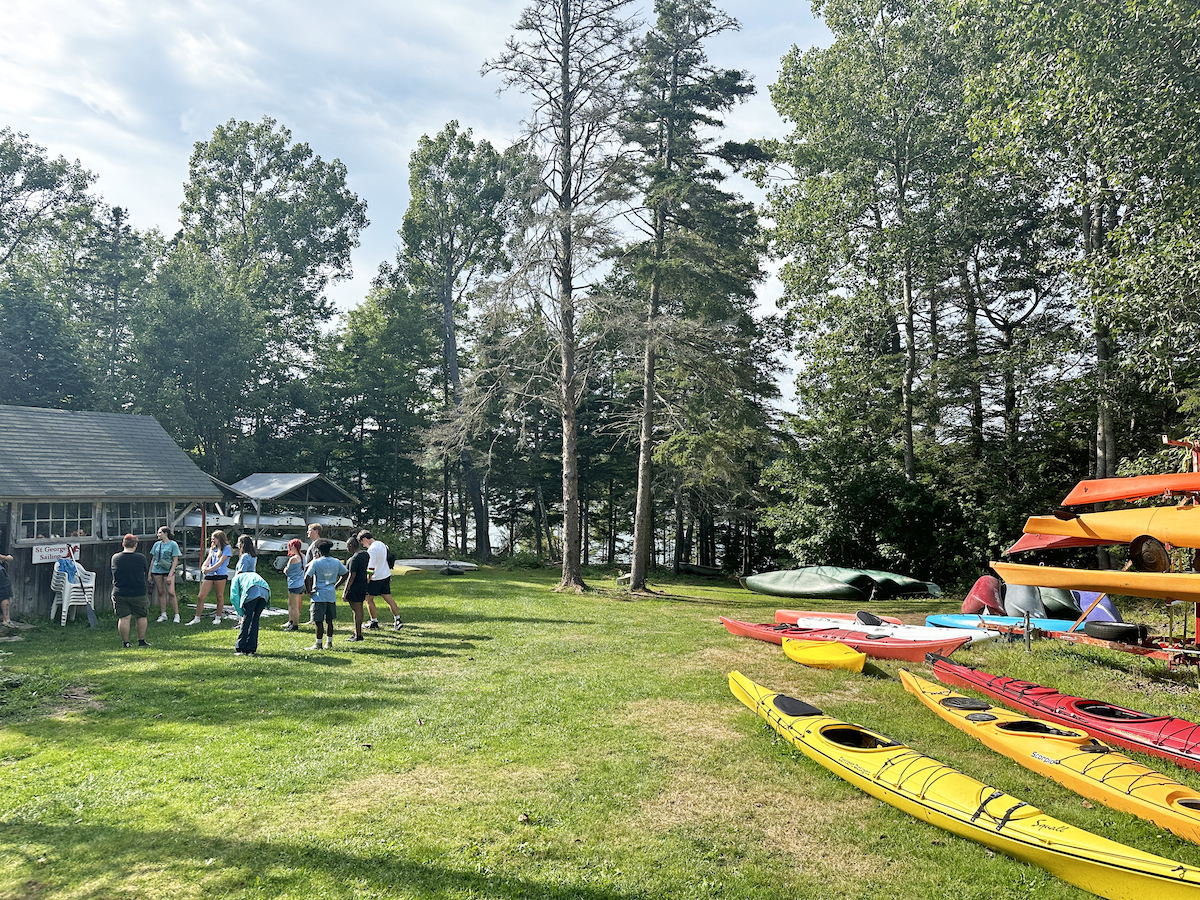
Outdoor adventure at 4-H centers eases first-year students’ entry into college life
Orono, Maine — All across the country, fresh-faced students arrived at college in late August for the first time, toting with them backpacks, comforters, mini fridges and a wide array of hopes and dreams. While many are excited about starting classes or making new friends, some may struggle to manage a heavier homework schedule, navigate an unfamiliar network of support services, or find that group of friends that makes them feel at home. To make the transition easier and more fun, University of Maine Cooperative Extension brought first-year University of Maine students on outdoor adventures that introduced them to peers, university education and the state’s bountiful wilderness.
At UMaine, hundreds of first-year students participate in bridge week, an orientation program that is part of a University of Maine System-wide initiative called Research Learning Experiences (RLEs). The week offers several options intended to make the transition to college just a little easier. About 160 students chose the UMaine Immersion option and spent several days at one of three UMaine Extension 4-H Learning Centers, where they explored the state’s natural resources and tried out new experiences like paddleboarding, hiking, rock climbing, ziplining and archery.
After a full day of group learning activities at Blueberry Cove 4-H Center in Tenants Harbor, Emerson Salguero and Luis Leon, both from Las Vegas, and Matthew Maglione, from Italy, visited the iconic Marshall Point Lighthouse and a nearby beach. All three of them are part of a pre-engineering program, and said they were looking forward to meeting new friends and exploring Maine’s great outdoors.
“Everything about the state screams adventure!” Leon said.
But they’re also worried about balancing the opportunities for fun with putting in the time needed to study. Salguero in particular wondered about finding the “right” group of friends.
Several studies have shown that a big challenge for new college students is making personal connections and finding a community where they feel like they belong. This can be a barrier to their overall success in school and can affect their decision to stay. UMaine Extension’s 4-H Centers are uniquely positioned to provide a variety of opportunities for new students to make meaningful connections with one another.
At Bryant Pond 4-H Center, nestled in the western mountains near Bethel, Gabrielle Dornes, an elementary education major from Delaware, shared her concerns about building a routine and finding her people.
“Being at Bryant Pond has already been a good way to meet new friends,” she said, smiling at two of her fellow students sitting next to her on the lakefront.
“Experiential learning in the outdoors is important developmentally not only for younger kids, but also older teens and young adults,” said Ryder Scott, executive director of UMaine Extension 4-H Camp and Learning Centers. “There isn’t a quicker and more meaningful way to facilitate connection between people than through shared experiences that overcome challenges in the outdoors. When combined with time to quietly reflect, say around a campfire, a solid foundation is established for building friendships that will last a lifetime.”
4-H programs are built on a model of positive youth development where the focus is on cultivating a growth mindset and fostering an openness to challenge and discovery. These tenets have proven to facilitate personal growth and nurture impactful connections. UMaine Extension’s 4-H learning centers combine the positive youth development model with outdoor experiential learning to offer an environment where learners can participate in fun activities with purpose and intention. Like all aspects of UMaine Extension, programs at the learning centers are evidence-based and, time and again, staff have seen the positive results firsthand.
Experiences at the learning centers also serve to introduce students to the many natural resources that Maine has to offer.
“When we introduce students to iconic and beautiful places in Maine, we are also helping them connect with the state itself and feel a real sense of place here,” said Scott. “Our programs emphasize Maine’s incredible outdoor resources and underscore their accessibility to everyone, from beginner to advanced users.”
The abundant opportunities for outdoor recreational activities like paddling, hiking and climbing also help foster a sense of stewardship among students, kindling a desire to stay in Maine, build a life and career here, and preserve that important heritage.
As the largest outreach component of UMaine, Extension and its 4-H Youth Development program have long helped connect young people to the state’s flagship university through elementary and high school programs, college internships and workshops, webinars and micro-credential courses after graduation. With its involvement in UMaine Immersion, Extension is providing space and guidance for students to successfully navigate what can often be a challenging transition, preparing them to be successful learners and researchers, complete their college degree and find fulfilling and impactful work.
UMaine Immersion is one of several bridge week experiences offered to students participating in semester-long Research Learning Experiences (RLEs). For fall 2024, 19 RLE programs have been offered at UMaine and its regional campus, the University of Maine at Machias, through which students can engage in research and other hands-on learning at the start of their college career. There are 725 first-year students at UMaine participating in RLEs this semester, or 34% of all first-year learners. RLEs are among the offerings devised through UMS TRANSFORMS, a multifaceted initiative from the University of Maine System supported by a $320 million commitment from the Harold Alfond Foundation.
University of Maine Cooperative Extension
As a trusted resource for over 100 years, Extension has supported UMaine’s land and sea grant public education role by conducting community-driven, research-based programs in every Maine county. UMaine Extension seeks to build thriving communities and help grow the food-based economy. Extension also leads Maine’s 4-H program, the most successful out-of-school youth educational program in the state. 4-H programs are grounded in the belief that kids learn best by doing and are developed to fit a variety of backgrounds, interests, budgets and schedules. Participants complete hands-on projects in areas like health, science, agriculture and civic engagement in a positive environment where they are encouraged to take on proactive leadership roles.

